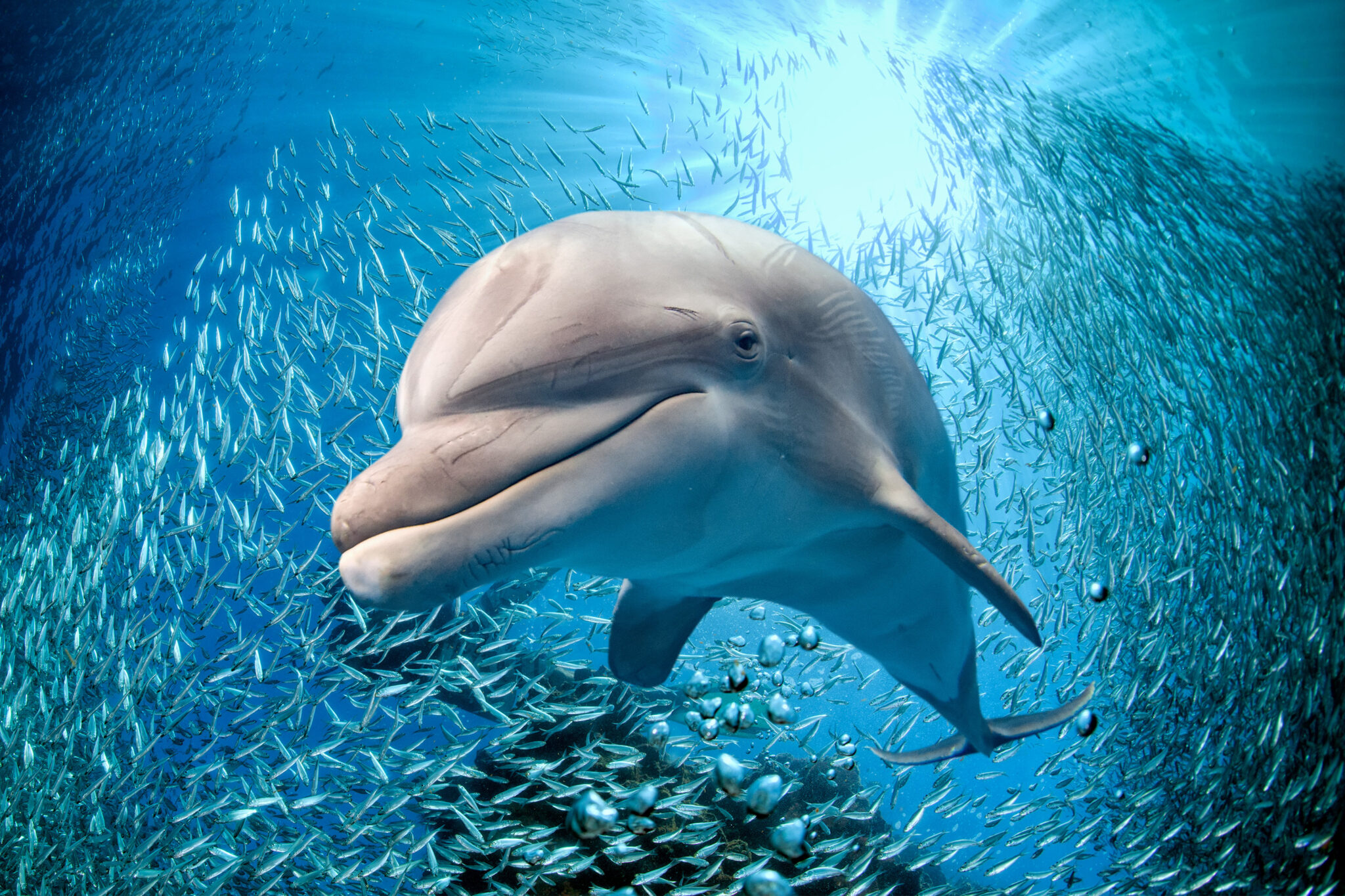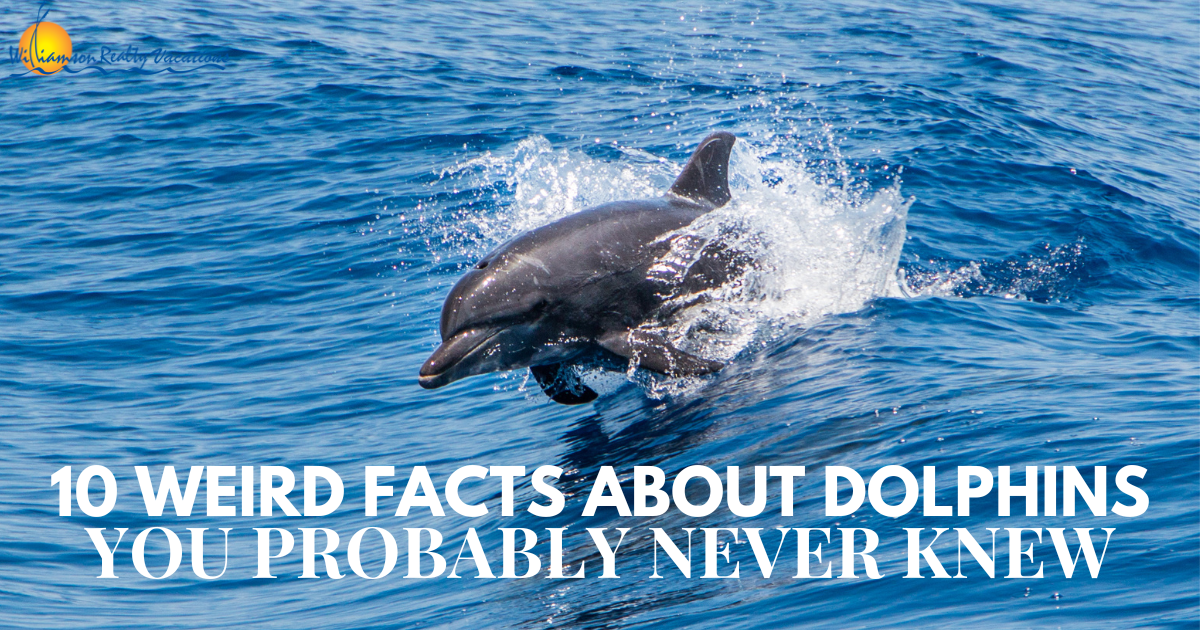Discover Rare Dolphin Facts That Make Them One-of-a-kind Amongst Marine Animals
Discover Rare Dolphin Facts That Make Them One-of-a-kind Amongst Marine Animals
Blog Article
Study the Sea: Exciting Dolphin Truths for Sea Lovers
The globe of dolphins provides a remarkable crossway of knowledge, social habits, and ecological value. With about 37 types, these aquatic animals exhibit a series of impressive qualities that not only captivate sea enthusiasts however likewise underscore their crucial role in aquatic ecological communities. From their complex communication approaches to their outstanding problem-solving abilities, dolphins challenge our understanding of animal knowledge. Nevertheless, the pressing need for preservation efforts to secure these creatures and their habitats raises vital concerns concerning our obligation towards the ocean's residents. What implications do these factors hold for our interactions with these exceptional beings?
Dolphin Species Variety
Variety is a trademark of the dolphin household, encompassing a variety of varieties that display distinctive physical qualities, actions, and environments. The family Delphinidae, generally understood as oceanic dolphins, makes up roughly 37 species, each adjusted to particular ecological particular niches. The bottlenose dolphin (Tursiops truncatus) is renowned for its knowledge and convenience, prospering in both open and coastal sea settings.
On the other hand, the orca (Orcinus whale), frequently described as the killer whale, is the largest member of the dolphin family and is defined by its striking black-and-white coloration. Orcas demonstrate intricate social frameworks and searching techniques, showcasing the behavior variety within the family. Other varieties, such as the spinner dolphin (Stenella longirostris), are noted for their acrobatic screens and preference for warmer waters, highlighting the versatility of dolphins to different aquatic ecological communities.
Furthermore, river dolphins, consisting of the pink river dolphin (Inia geoffrensis), inhabit freshwater environments, better illustrating the varied environments that dolphins occupy. Dolphin Facts. This extraordinary variety not just enhances marine ecosystems however also highlights the relevance of preservation initiatives to secure these remarkable creatures and their environments
Social Actions and Communication
The detailed social habits and interaction techniques of dolphins are essential parts of their existence, assisting in team cohesion and enhancing survival. These highly smart marine creatures exhibit complex social frameworks, often forming sheathings that can vary from a few individuals to over a hundred. Within these teams, dolphins take part in actions such as participating searching, social play, and shared security, which cultivate solid bonds amongst participants.
Dolphins make use of a sophisticated array of articulations, consisting of clicks, whistles, and body movement, to communicate info and share feelings. Their signature whistles offer as special identifiers, similar to names, enabling people to call out to each other. This vocal interaction is matched by non-verbal signals, such as leaping, slapping the water, and synchronized swimming, which even more enhances their interactions.

Special Feeding Routines
Distinct feeding habits identify dolphins, showcasing their versatility and intelligence in numerous marine environments. These aquatic creatures are understood for their diverse diet plans, which mainly include fish, squid, and shellfishes. Their hunting strategies can vary dramatically, commonly tailored to the details victim and ecological conditions.
One notable technique is cooperative searching, where dolphins work in teams to herd schools of fish right into limited formations, making it easier for individuals to capture their meal. This social actions not only improves their feeding efficiency however also strengthens social bonds within the go to these guys case. Additionally, dolphins have been observed using a technique called "fish-whacking," where they utilize their tails to stun or disorient fish, promoting simpler capture.
An additional fascinating feeding practice is echolocation, which permits dolphins to spot target also in murky waters. By sending out acoustic waves and translating the returning mirrors, they can identify the size, shape, and area of their targets. This remarkable ability highlights their flexibility in various habitats, from shallow seaside locations to much deeper nautical waters. Overall, the distinct feeding behaviors of dolphins highlight their role as proficient predators within the marine environment, showing both knowledge and ingenuity.
Knowledge and Issue Fixing
Their intelligence is noticeable in their analytical skills, social interactions, and ability for discovering. Research study has shown that dolphins can use tools, such as making use of marine sponges to protect their rostrums while foraging on the seafloor.
In addition, dolphins show sophisticated interaction abilities, employing an intricate system of clicks, whistles, and body language. Dolphin Facts. This communication is critical for collaborating group tasks, such as hunting and mingling, showing their capacity to work jointly towards an usual goal. Their ability to comprehend abstract concepts, consisting of self-recognition in mirrors, further stresses their cognitive sophistication
In regulated studies, dolphins Full Report have actually shown a capability to solve challenges and perform tasks that call for both memory and vital reasoning. These interactions show not only intelligence yet additionally a determination to involve with their environment in novel means. Overall, the cognitive expertise of dolphins positions them among the most smart species on earth, cultivating a deeper gratitude for their duty in aquatic communities.
Preservation and Environmental Influence
Conservation efforts targeted at shielding marine environments are critical for preserving dolphin populations and their habitats. Dolphins are extremely conscious environmental changes, and their survival is delicately connected to the wellness of oceanic ecological communities. Overfishing, contamination, and environment modification position significant hazards to both dolphins and their atmospheres.
Overfishing interferes with the food cycle, resulting in a decline in target varieties essential for dolphin survival. Toxins such as chemicals and plastics collect in aquatic atmospheres, threatening dolphins with consumption and bioaccumulation. Enhanced water temperatures and ocean acidification, effects of environment modification, additionally endanger the delicate balance of aquatic ecological communities, influencing dolphin reproduction and migratory patterns.
By prioritizing preservation efforts, we can make sure that future generations enjoy the elegance and vitality of dolphins and the seas they inhabit. Securing aquatic communities is not simply about conserving dolphins; it is concerning protecting the detailed web of life that sustains us all.
Verdict
Dolphins exemplify the intricacy and splendor of marine life with their varied species, elaborate social frameworks, and advanced cognitive capabilities. Their one-of-a-kind feeding habits and communication approaches further illustrate their versatility and knowledge. As vital elements of aquatic ecological communities, dolphins underscore the requirement of continuous preservation initiatives to safeguard their habitats. Securing these impressive animals is important not only for their survival however additionally for keeping the wellness and balance of sea atmospheres internationally.
Various other varieties, such as the rewriter dolphin (Stenella longirostris), are kept in mind for their acrobatic screens and preference for warmer waters, highlighting the versatility of dolphins to different marine ecosystems.
In general, the unique feeding habits of dolphins highlight their role as experienced predators within the aquatic ecological community, showing both knowledge and resourcefulness.
Overall, the cognitive expertise of dolphins positions them amongst the most intelligent species on the earth, cultivating a deeper gratitude for their role in aquatic environments.

Report this page